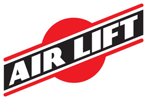 |
Learning Center About Track My Order Cart | |||
Talk to a Hitch Expert 1-877-507-0711 |
||||
|
We are an independent authorized dealer of Reese and other products. |
8am-5pm CT M-F |
|||
General Towing FAQs



To Tow You Need 3 Things...
- The Tow Vehicle
- A Towing Package
- The Trailer
Determine the Capacities
(GTW & TW)
The two most important factors in selecting towing equipment are gross trailer weight (GTW) and tongue weight (TW).
In the previous step, we determined some basic information about our tow vehicle and trailer. Specifically, you need to determine the Gross trailer weight of the trailer. The Gross trailer weight is the weight of the trailer fully loaded in its actual towing condition.
Determining the Gross Trailer Weight:
GTW is measured by placing the fully loaded trailer on a vehicle scale. The entire weight of the trailer should be supported on the scale.
Tongue weight (TW) is the downward force exerted on the hitch ball by the trailer coupler.
In most cases, it is about 10 to 15 percent of GTW. TW of up to 300 lbs. can be measured on a household scale by resting the trailer coupler on the scale and placing the scale on a box so that the coupler is at its normal towing height. The trailer must be fully loaded and level.
For heavier tongue weights, place a household scale and a brick that's as thick as the scale three feet apart. Set a length of pipe on each and rest a beam across the pipes. Re-zero the scale to correct for the weight of the beam and pipe. Securely block the trailer wheels. Rest the trailer jack on the beam, one (1) foot from the brick and two feet from the scale.
To obtain the TW, multiply the scale reading by three. For greater tongue weights, place the scale and brick four feet apart, rest the jack on the beam three feet from the scale and multiply the scale reading by four.
Choose From These Topics
For the Tow Vehicle:
Like the trailer, the tow vehicle has a maximum weight capacity it was designed to tow. Its maximum towing capacity can be found in the owner's manual.
You can use our Gross Trailer Weight (GTW) & Tongue Weight (TW) chart to see the typical breakdown of trailers and trailer weights.








